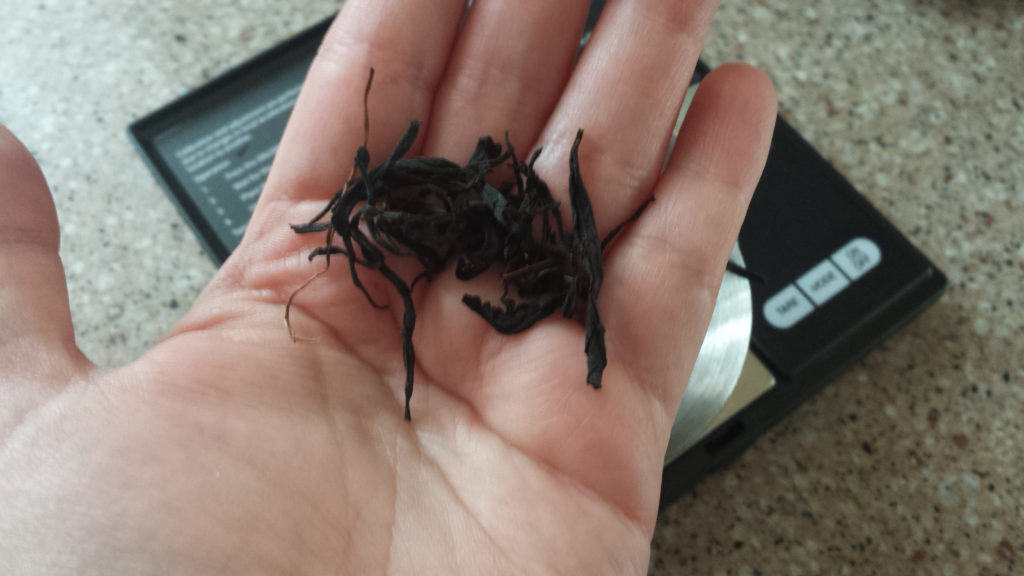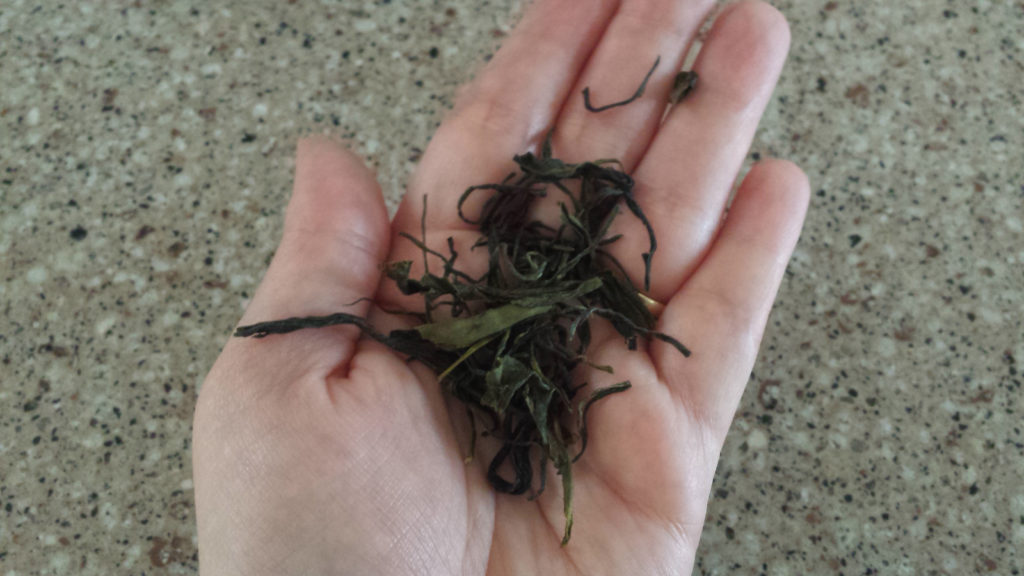What-Cha’s specialty is sourcing and selling tea grown in countries you don’t normally associate with tea production. I’ve looked at some of their white tea from Kenya before, as well as a black tea from Nepal. Today I’m going even further afield by trying two teas from Russia, a country that you’d normally think would be too cold to grow tea. But, it looks like you can! Onwards.
Russia Host Tea Estate Black Tea
Both of today’s teas come from the same estate, so I thought it would be interesting to compare the two side-by-side. First up is their black tea, which, when dry, looks long, dark brown, and twiggy, and smells richly of citrus and raisins.

I took about 2 grams (enough for larger mug) and steeped it for 4 minutes at 90°C, as per the instructions on the package.
The resulting tea was a cool umber colour and smelled malty, robust, citrusy, and raisiny. It reminded me of a Ceylon tea, but it wasn’t quite as sharp. The first sip was a surprise, though: it was somewhat thin-tasting, but also floral — it made me think of lychees.
I brewed the remaining leaf in the packet a few weeks later and it was similarly thin, fruity and floral; it reminded me then of cherries.
You can buy Russia Host Tea Estate Black Tea here.
Russia Host Tea Estate Green Tea
The dry leaf of the green tea from Russia Host Tea Estate is similar in size and shape to the black tea: long, twiggy, but somewhat broader across. Some of the dry leaf is so brightly green and wide that it makes me think of a white tea, actually. This is some pretty aesthetically pleasing leaf!

When I first opened the packet of tea, I was greeted by an intensely vegetal aroma that reminded me of Chinese tea. It was buttery and beany, but underneath there was a surprising undertone of sweetness.
I brewed it for 80°C for 2 minutes, as recommended on the package, and that resulted in a tea that was a pale straw green colour. The smell of the brewed tea was pretty similar to the taste of the dry leaf: vegetal, nutty, and buttery, like a dragonwell tea.
This held up upon the first sip, too, but that sweet undertone made comeback — underneath the vegetables and the butter, I sensed an intensely sweet note that, rather than being fruity, reminded me of the neutral, inert sort of sweetness that you get from syrup or icing sugar. Weird!
